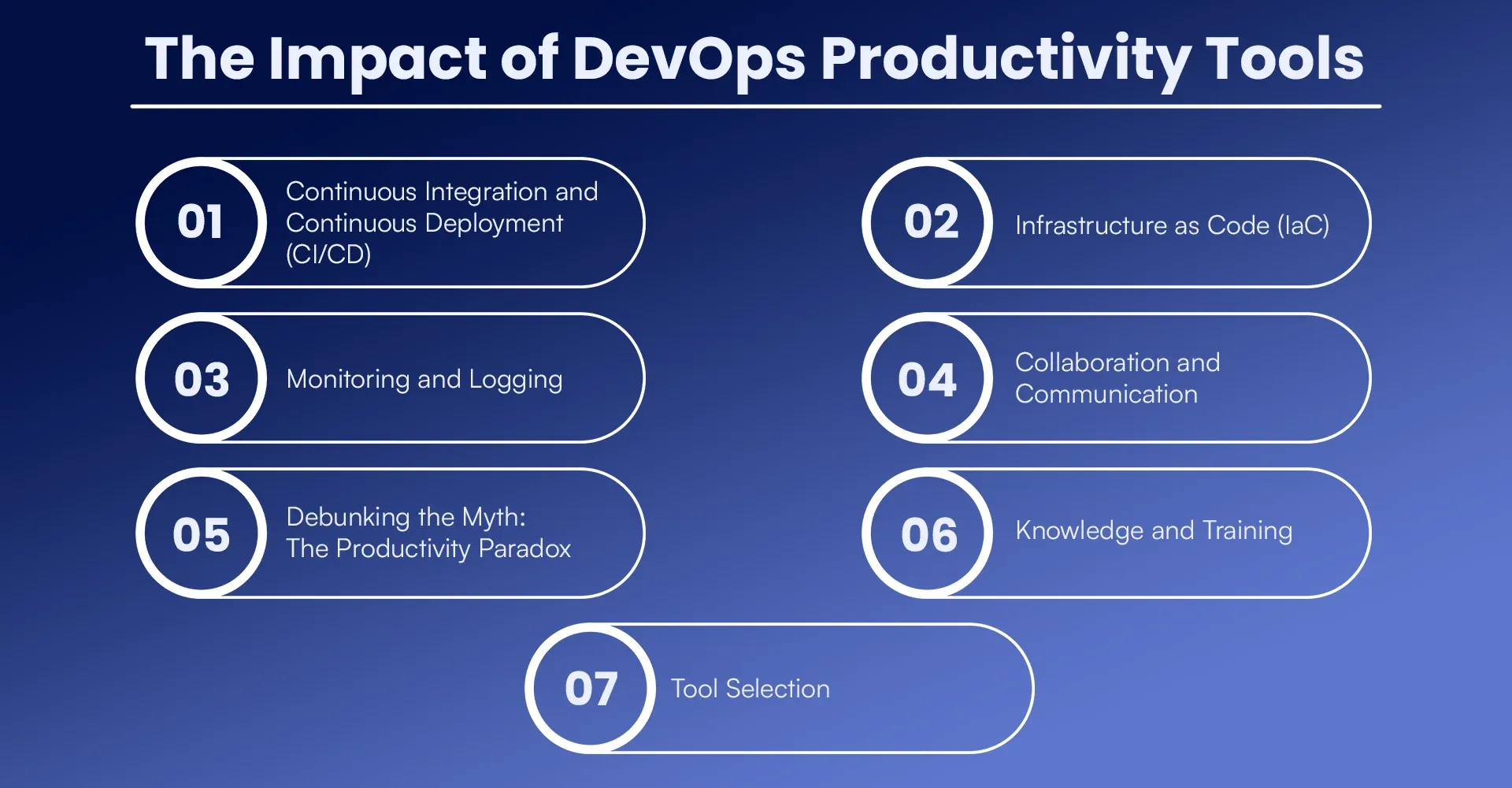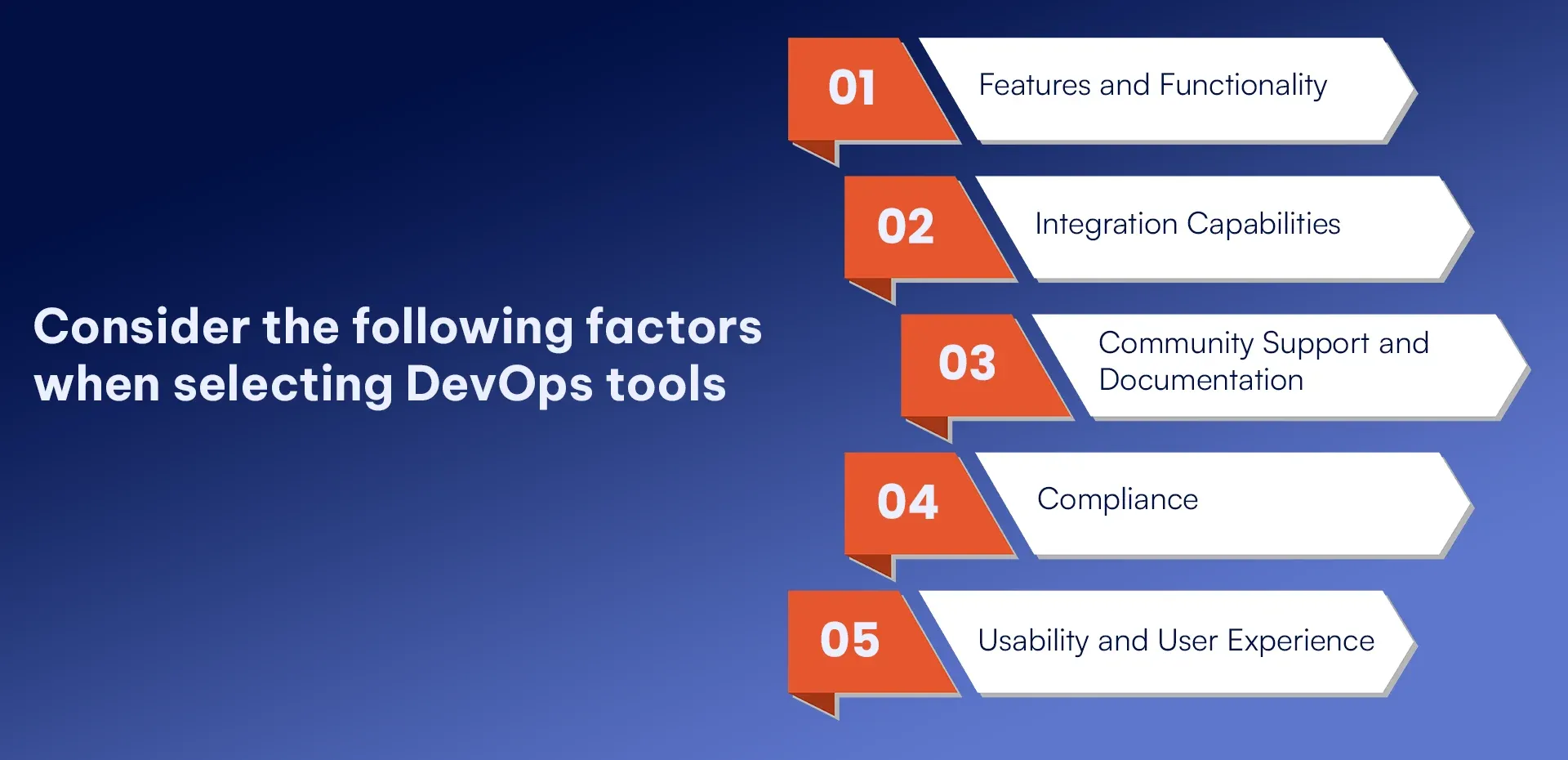
A variety of approaches is required to achieve improved business productivity in the ever changing digital world. DevOps, the marriage of development and operations, is an agent of change in software development and deployment. It's important to see that the success of DevOps is not only determined by the choice of tools but also by how these tools are strategically used. In this detailed guide we explain the details about productivity tools in DevOps while at the same time correcting a myth that they are a barrier to efficiency.
A hardworking team should have high quality training and skill enhancement. Discover our technical courses to develop a knowledgeable and effective team, taking your business to new horizons.
Understanding the DevOps Ecosystem
Before going deep into the details of DevOps productivity tools, one has to have a complete picture of the DevOps landscape. The essence of DevOps approach is cooperation, communication, and integration between development and operations teams. This smooth alignment focuses on making the whole process of software development life cycle more efficient, quicker time-to-market and higher product quality.
The Impact of DevOps Productivity Tools
 DevOps productivity tools are the force that drives a company’s development and innovation. These tools provide automated solutions, smooth integration and effective management of different development and operational tasks. DevOps productivity tools, by automating repetitive and time-consuming processes, allow teams to focus on strategic and value-driven initiatives.
DevOps productivity tools are the force that drives a company’s development and innovation. These tools provide automated solutions, smooth integration and effective management of different development and operational tasks. DevOps productivity tools, by automating repetitive and time-consuming processes, allow teams to focus on strategic and value-driven initiatives.
Continuous Integration and Continuous Deployment (CI/CD)
The use of DevOps productivity tools leads organizations to a culture of Continuous Integration and Continuous Deployment (CI/CD) where the software development process is completely transformed. These tools do this by automating code integration, build, test, and deployment processes, ensuring quick and dependable delivery of software updates. This eliminates human errors that cause downtime and improves quality on a continuous basis.
Infrastructure as Code (IaC)
IaC (Infrastructure as Code) is the foundation of DevOps, which gives teams the power to define and manage infrastructures through code. Productivity tools of DevOps services empower organizations to use IaC frameworks like Terraform and Ansible for automating the provisioning and configuration of infrastructural resources. This approach guarantees consistency, scalability, and reproducibility leading to a faster deployment without changing the desired infrastructure state.
Monitoring and Logging
Proactive monitoring and strong logging are critical for sustaining high system performance as well as finding potential bottlenecks. Tools used in DevOps for productivity come with detailed monitoring and logging features, including Prometheus and ELK Stack that provide a live view of the applications’ fitness level and infrastructures. With the help of these tools, teams can spot issues beforehand, solve problems, and guarantee that there is no interruption to the end user experience.
Collaboration and Communication
Effective teamwork and communication are the main factors in DevOps productivity. Productivity tools for DevOps provide integrated platforms such as Jira, Slack, and Microsoft Teams for effective communication and collaboration among distributed teams. These tools make it easy to share information in real time, manage tasks and control versions which is a guarantee of a synchronized and cohesive workflow.
Debunking the Myth: The Productivity Paradox
Let's look at the unlimited capabilities of DevOps productivity tools before we debunk the myth that they kill productivity. It is essential to understand that the performance of DevOps tools can be affected by their strategic implementation and the capabilities of the teams using them. The following explains it:
Knowledge and Training
Organizations need to invest in training their teams through technical courses to make effective use of DevOps productivity tools. Poor training and lack of understanding may lead to misuse or underutilization of these tools which will cause a decrease in productivity.
Tool Selection
Not all DevOps tools are the same. The right tools which fit into your organization's unique needs should be chosen. A comprehensive evaluation of the tool's features, integration capabilities, and community support is key to achieving productivity at maximum level.
Consider the following factors when selecting DevOps tools

-Features and Functionality: Assess whether the tool meets your specific needs in terms of functionalities. Make sure that it can be used on popular platforms such as Docker or Kubernetes if your team is heavily reliant on containerization.
- Integration Capabilities: Smooth incorporation into your existing toolchain and infrastructure is essential. Take into account the compatibility with programming languages, version control systems and deployment environments to guarantee an effective workflow.
- Community Support and Documentation: A very supportive and helpful community is priceless. Check the documentation, forums, and user communities for you to estimate the level of support available. Security and
- Compliance: Appraise security features including access controls and encryption. Ensure that you comply with industry standards as well as regulations relevant to your business.
- Usability and User Experience: The friendliness of an interface significantly influences productivity. Check out intuitive designs and clear documentation to lessen the learning curve and support efficient operations.
Effective Utilization of DevOps Tools
Once you have chosen the right DevOps tools, their productivity is largely determined by how well they are put to use. These best practices should be considered:
Training and Skill Development**
Technical Training and skill development programs to ensure teams have a good grasp of the selected tools. Offer options for practical training, workshops and knowledge-sharing sessions.
Automate Repetitive Tasks
DevOps tools perform well in automating repetitive and time-consuming tasks. Identify the parts in workflows where automation can be implemented, for example, code compilation, testing, deployment and monitoring. Not only time but also the risk of mortal error is preserved by industrialization.
Performance Monitoring and Optimization
Leverage built-in monitoring capabilities of DevOps tools to get application and infrastructure performance insights. Track key performance indicators and continuously improve processes to increase overall productivity.
Final Thoughts
Contrary to the myth that DevOps productivity tools slow down efficiency, they enable organizations to achieve higher levels of productivity if they are implemented and utilized effectively. The right tools can be chosen based on specific requirements, by analyzing their features, integration capabilities, and community support, in order to unlock the complete potential of DevOps tools in an organization. But that is just the tip of the iceberg. In order to maximize productivity, invest in Technical Training and skill development programs, promote clear communication and collaboration, automate repetitive tasks, create a culture of continuous improvement and monitor performance for workflow optimization.
DevOps productivity tools aren’t anti-productive but instead act as change agents who drive innovation, streamline processes and enhance efficiency. When used properly, these instruments can dramatically improve the capability of an organization to deliver superior quality software, reduce time-to-market and gain a competitive edge.
